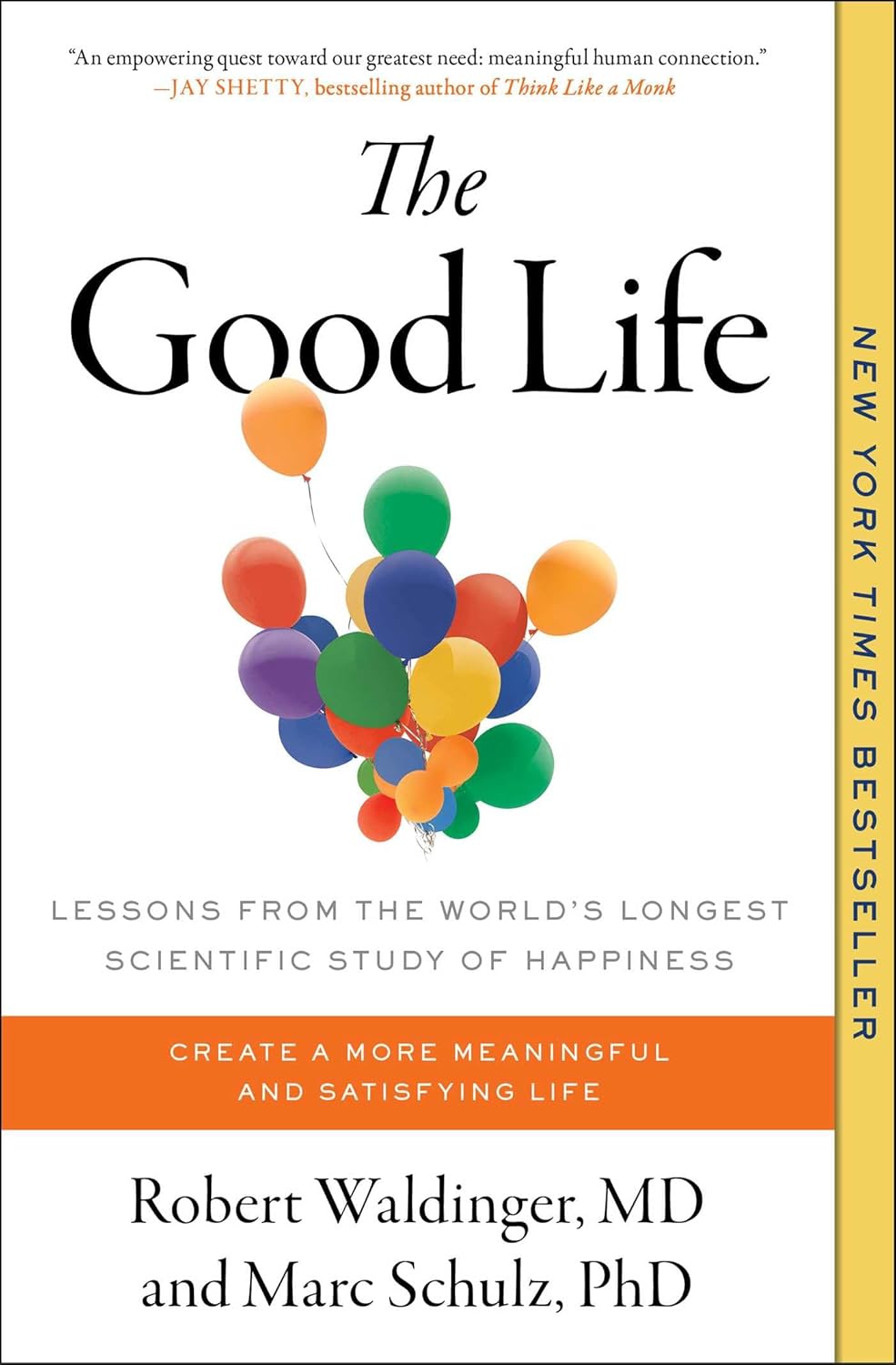內容簡介
內容簡介 幸福的人生建立在良好的人際關係上!什麼讓生命變得充實而有意義?簡單但驚人的答案是:關係。當我們的關係越強大,我們就越有可能過著幸福、滿足且整體更健康的生活。哈佛成人發展研究中心這項歷時最久的幸福科學研究揭示了,與他人的聯繫強度甚至可以預測我們身體和大腦的健康,並且這種預測會隨著我們的生活進程而延續。本書寶貴的見解來自於哈佛成人發展研究中的數百位參與者的人生故事,這些人從年輕到成年的每一階段都在研究範圍內,而這些故事背後的智慧也得到除這項研究以外其他多項研究的支持。無論是朋友關係、浪漫夥伴、家庭、同事、網球搭檔、讀書會成員,還是聖經學習小組等形式的關係——所有這些都促成了更幸福、更健康的生活。正如《The Good Life》所示,強化現有的關係永不嫌晚,建立新的關係也永不嫌遲。A good life is built with good relationships.What makes for a happy life, a fulfilling life? A good life? According to the directors of the Harvard Study of Adult Development, the longest scientific study of happiness ever conducted, the answer to these questions may be closer than you realize.What makes a life fulfilling and meaningful? The simple but surprising answer is: relationships. The stronger our relationships, the more likely we are to live happy, satisfying, and overall healthier lives. In fact, the Harvard Study of Adult Development reveals that the strength of our connections with others can predict the health of both our bodies and our brains as we go through life.The invaluable insights in this book emerge from the revealing personal stories of hundreds of participants in the Harvard Study as they were followed year after year for their entire adult lives, and this wisdom is bolstered by research findings from this and many other studies. Relationships in all their forms—friendships, romantic partnerships, families, coworkers, tennis partners, book club members, Bible study groups—all contribute to a happier, healthier life. And as The Good Life shows us, it’s never too late to strengthen the relationships you have, and never too late to build new ones.Dr. Waldinger’s TED Talk about the Harvard Study, “What Makes a Good Life,” has been viewed more than 42 million times and is one of the ten most-watched TED talks ever.
各界推薦
各界推薦 “Robert Waldinger and Marc Schulz lead us on an empowering quest towards our greatest need: meaningful human connection. Blending research from an ongoing 80-year study of life satisfaction with emotional storytelling proves that ancient wisdom has been right all along – a good life is built with good relationships.” -- Jay Shetty, bestselling author of Think Like a Monk and host of the podcast On Purpose“I'm beyond thrilled that Dr. Waldinger and Dr. Schulz are publishing the findings of the Harvard Study. Over the years, I've discussed their research and recommended Dr. Waldinger's TED talk around the world. I can hardly wait to recommend The Good Life. It's accessible, interesting, and grounded in research—and is bound to make a difference in the lives of millions." -- Tal Ben-Shahar, bestselling author of Being Happy: You Don't Have to Be Perfect to Lead a Richer, Happier Life, and Happier: Learn the Secrets to Daily Joy and Lasting Fulfillment"This book is simply extraordinary. It weaves ‘hard data’ and enlightening case studies and interviews together seamlessly in a way that stays true to the science while humanizing it. And what an important lesson it teaches. It helps people to understand how they should live their lives, and also provides a spectacular picture of what psychology can be at its best. It is data driven, of course, but data are just noise without wise interpretation.” -- Barry Schwartz, author of Practical Wisdom (with Kenneth Sharpe) and Why We Work
作者介紹
作者介紹 Robert WaldingerDr. Robert Waldinger is a professor of psychiatry at Harvard Medical School, director of the Harvard Study of Adult Development at Massachusetts General Hospital, and cofounder of the Lifespan Research Foundation. Dr. Waldinger received his AB from Harvard College and his MD from Harvard Medical School. He is a practicing psychiatrist and psychoanalyst, and he directs a psychotherapy teaching program for Harvard psychiatry residents. He is also a Zen master (Roshi) and teaches meditation in New England and around the world.Marc SchulzMarc Schulz is the associate director of the Harvard Study of Adult Development and the Sue Kardas PhD 1971 Chair in Psychology at Bryn Mawr College. He also directs the Data Science Program and previously chaired the psychology department and Clinical Developmental Psychology PhD program at Bryn Mawr. Dr. Schulz received his BA from Amherst College and his PhD in clinical psychology from the University of California at Berkeley. He is a practicing therapist with postdoctoral training in health and clinical psychology at Harvard Medical School.
